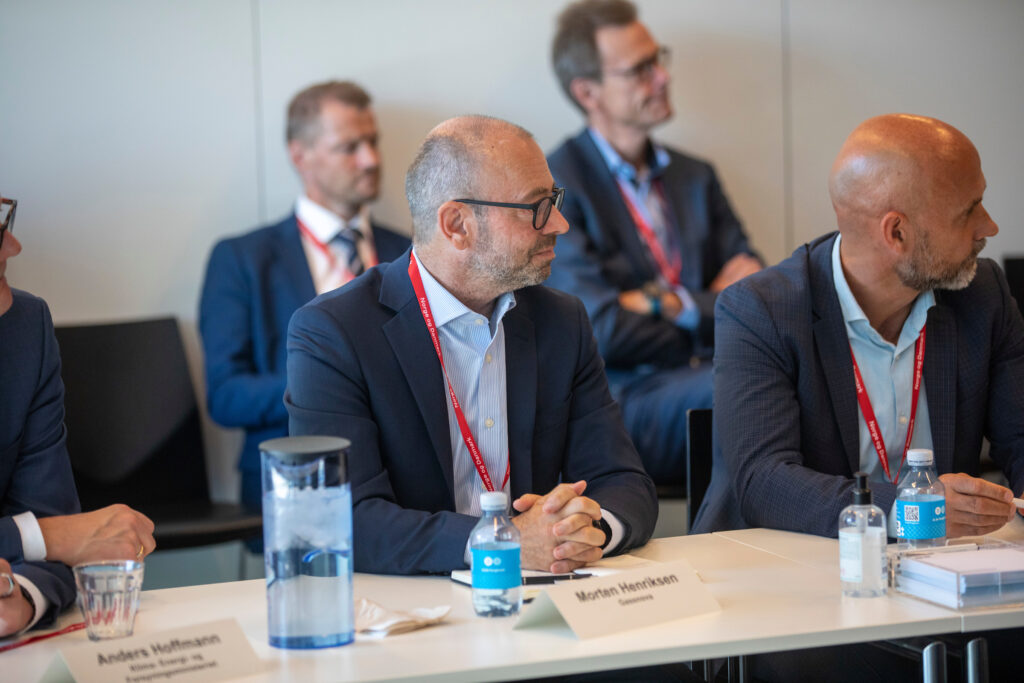
16.06.2023
We must implement carbon storage on a large scale
The infrastructure to enable large-scale carbon storage must be established, and co-operation between countries, such as Norway and Denmark, is crucial to making this happen.
This was the clear message from Gassnova CEO Morten Henriksen during a roundtable discussion in Denmark on Thursday.
Norway and Denmark are working together at both the governmental and corporate level
In connection with the official visit of Their Majesties King Harald and Queen Sonja of Norway to Her Majesty Queen Margrethe and Denmark on 15 and 16 June, a roundtable discussion was held on the topic of CCS between national authorities and industry leaders from both countries. Both Norway and Denmark are prioritising carbon capture and storage.
“Norway and Denmark have much to gain from co-operating on carbon capture and storage and are already well on the way towards this. To make CCS profitable, it is essential that infrastructure will be developed at large-scale. Norway and Denmark alone are not likely to have sufficient emissions to make CCS profitable. This means these countries are completely dependent on co-operating with other countries,” says Henriksen.
Longship
Through the Longship project, Norway is close to establishing Europe’s first entire carbon capture value chain, capturing industrial emissions, transporting the carbon by ship and pipes and permanently storing it offshore. First, CO2 from the Heidelberg Materials cement factory in Brevik will be captured and stored. However, the transport and storage operator Northern Lights has built additional capacity into its infrastructure and offers carbon transport and storage as a service to other industrial enterprises wanting to implement carbon capture. In May, it was announced that Northern Lights had entered into an agreement with the Danish energy company Ørsted for the storage of 430,000 tonnes of carbon.
“Longship is a vital first step. Going forward, we need to facilitate the development of infrastructure at a larger scale,” says Henriksen.
At a governmental level, Norway and Denmark have had strong dialogue for a number of years. In 2019, Gassnova arranged a study visit to Norway for Danish authorities with participants from the Danish Ministry of Climate, Energy and Utilities, the Danish Energy Agency, the Geological Survey of Denmark and Greenland and the Danish Embassy in Norway. At the time, CCS was not a part of Denmark’s climate policy. Since then, there have been major developments in Denmark regarding CCS. Today, Denmark is one of the most advanced countries in the EU in this area.


